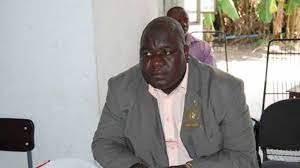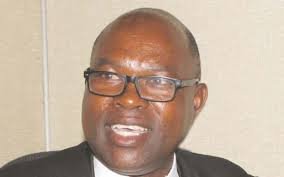Brighton Chiseva
“Touts (Mahwindi) should have a rude speaking contest with nurses and the winner should contest with civil registry employees”.
This is one of the many jokes often shared on social media that portray the treatment civil registry employees give clients at all centres, a development which results in long queues that often force people to abandon acquiring of birth and death certificates midway.
This brings in the question of whether late registration of births and deaths in Zimbabwe is a result of these inefficiencies, where the system fails to help people with special cases or it is just the reluctance of people who should prioritize getting the documents.
The Constitution of Zimbabwe together with other international statutes which Zimbabwe conforms to, stipulate that every citizen has a right to citizen registration which is having national identity documents like birth certificate or national identity card.
The question however remains unanswered but the truth of the matter is that the civil registry people often contribute to people’s failure to get the required documents in time.
Constitutionally, every birth should be registered within forty eight days while death should be registered within 30 days but recent statistics released by Zimbabwe Statistical Agency (Zimstat) from the 2022 national population and housing census indicated that more than 900 000 which translates to more than 21.1 percent of youth between 16 and 34 having no identity documents.
From the statistics, a total of 442 659 children were under one year on the census night nationally and of these, only 20.5 percent of them had birth certificates. In rural areas, 15 percent of the children under one year had birth certificates while 30 percent of their counterparts in urban areas had birth certificates.
A total of 1 308 157 persons aged between 5 and 20 years had not acquired birth certificates during the census period.
On death registration, of the 120 070 deaths that were recorded during census, 78 384 deaths which constitute 64.7 percent were registered. 30.3 percent were unregistered while 5 percent had unknown registration status.
Death registration is higher in urban areas which has 82.8 percent while rural statistics are lower with 56.8 percent.
Of these, 78 percent did not have birth records while the remainder had birth confirmation records.
However, there are a number of people who have no records at all; they have no IDs and they cannot be accounted for through the use of civil registry data.
According to Zimstat, Vital Statistics provide basic demographic and health data needed to inform policy planning and assist in monitoring progress towards attainment of government programmes and Sustainable Development Goals (SDGs).
Birth and death registration are key sources of demographic data for socio-economic development and population control in developing countries and are used to produce fundamental demographic and epidemiological measures that are needed in national planning across multiple sectors like education, labour and health.
A number of traditional leaders who spoke to this reporter said a number of issues like poverty; ignorance and requirements needed for vital statistics registration were behind poor registration especially in rural areas.
Senator Chief Nhema born Rangarirai Bwawanda of Zaka said the major challenge on birth registration was lack of knowledge among the general public coupled with accessibility as well as requirements needed for one to get a birth certificate.

He said there was need for massive education on the importance of documents as some people believe it is just needed for voting and other things of that sort.
“People don’t know the importance of having a birth certificate or a national Identity card. Right now we are going for elections, that’s when you hear people rushing to get IDs. To them it’s only important for voting and nothing else.
“Another challenge is that of requirements needed for birth registration, especially if it’s late. People are required to bring witnesses to get a birth certificate or ID. That is very dissuading. Imagine you are here in Zaka, one of the witnesses is in Harare another is somewhere else, and so there is cost of transporting those people,” said Nhema.
Though government is working on modalities to empower Chiefs to be able to issue notification records of birth and death for those who are born or die outside health institutions, Chief Nhema said that alone was not enough, saying authorities should allow traditional leaders to recommend people for birth and death registration even for other people who would have failed to acquire them in time due to different reasons.
“The authorities should allow us to write recommendations for anyone in my area because we know them. The questions that are asked when applying for these documents are just too much. We have people whom we give a place to live coming from Gokwe and when they want to go for ID or birth registration, they are asked to get a letter from a Chief in Gokwe but I know the person, I should be allowed to help,” said Nhema.
The same was echoed by Joseph Mutubuki, the Matigimu village head in Zaka who said the requirements were too much for aliens.

He said he had a situation of a man named Lucas Kumbuya in his village who had been staying there for more than thirty years but could not get a birth certificate or a national ID because he was originally from Mozambique.
“We have a current situation of a man who has since given up his quest to acquire a birth certificate or national ID. He has been living in my village for more than 30 years but all efforts to help him get these documents were in vain,” said Mutubuki.
Kumbuya narrated his story saying it was emotionally affecting him since his wife is now representing his family on all issues that require an ID.
“I was born in 1972 in Mozambique and migrated to Zimbabwe in 1980. He went to Muchechetere in 1982 doing cattle herding as a job, after which he went to Muzondidya area in 1987 before his boss migrated to Mutubuki village which is next to Matigimu. In 1991 he got married and had his first born in 1992. He travelled back to Chambuta Refugee Camp, Tongogara in 1993 and came back to Matigimu village in 1994 and was given land by the late village head Taitos Mutubuki.
“I now have six children who all bare their mother’s surname; it mentally affects me, to think that I have children who cannot be called by my name. However, I am grateful that at least they have these documents. Another issue that affects me is that I cannot exercise other rights like voting, I cannot represent my family even on aid distribution, with my wife always doing that on behalf of the family, a development that makes me feel less manly,” said Kumbuya.
Chief Chitanga born Feleni Chauke said the major reason for late registration of births and deaths was a result of distance to access the services especially in rural areas.He said government should ensure that as a temporary measure, mobile registration blitz should become a permanent feature on the civil registry calendar saying it should not be done towards election time alone while permanent solutions are being put in place.
“The issue of distance affects registration of births and deaths especially here in Mwenezi. The registry centre is far away for a number of communities and because of poverty, people tend to give priorities to immediate challenges like buying food.
“So the registry department should do more mobile registration exercises all year round and make sure that people are aware of the visiting days before they come, then with resources permitting more permanent solutions must be put in place like further decentralizing from the district registry offices,” said Chitanga.
Chief Murinye real name Ephias Munodawafa agreed with Chitanga saying poverty was a major hindrance in terms of death registration saying a number of people in rural areas have no estates that may require court administration hence once one dies, they bury and forget that children may need to use the death certificate at some point.

“Poverty in rural areas affect people when it comes to registration of death certificates, once a person is buried and has nothing that may require court administration then that’s it. Many people have an unwritten wills where people know how the estate will be distributed and in that case they don’t see any reason for registering a death certificate,” said Murinye.
On birth certificates, Murinye said failure to register a birth certificate was a clear sign of negligence on the part of parents saying birth certificates were a prerequisite for any birth in the country.
“Failure to register a birth is a clear sign of negligence from parents, birth registration is very important and should be equally be prioritized like any other basic needs. The government do decentralized registration blitz but some still fail to get births for their children. Some even fail to send kids to school and that is the same way they fail to get birth for them. However, this has a bearing on children who sometimes struggle to get the documents when they need to use them and in some cases the parents would have died,” said Murinye.
On his part, Chief Mugabe born Matubede Mudavanhu said he passed a decree in his area where every child should have a birth certificate within two weeks of being born and village heads are there to enforce that decree, failure of which the village head will be answerable.
“Laws differ from Chief to Chief but I urge my colleagues to replicate what we in Mugabe area do to make sure that people register birth certificates as early as possible. In my area, we have a policy which requires every birth to be registered within two weeks. For enforcement of this, village heads are in charge and if a birth occurs and the deadline is not met, then the village head will be answerable,” said Mugabe.
Chief Ndanga real name Wilson Makono said the Zimstat and the civil registry should avail such statistics to them as traditional leaders so that they can see how they can help to maximize vital statistics registration.
He said poor registration was pure lack of awareness on the importance of registering births and deaths saying more need to be done to conscientise people on the importance of acquiring the documents.
“People don’t know the importance of these documents that is the reason why many are reluctant to get them. A number of people now have funeral policies and they get burial orders before burying their loved ones, however, after burial they ignore getting a death certificate,” said Nyanga.
Those with unusual cases however still face a mammoth task at registry centres as the procedures to acquire the documents through the right channel become deterrent, leaving them at the mercy of corruption and being frustrated just to be registered in the national system, a basic right.
